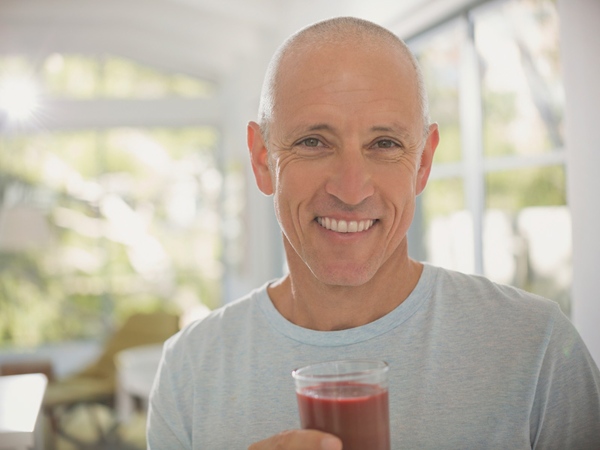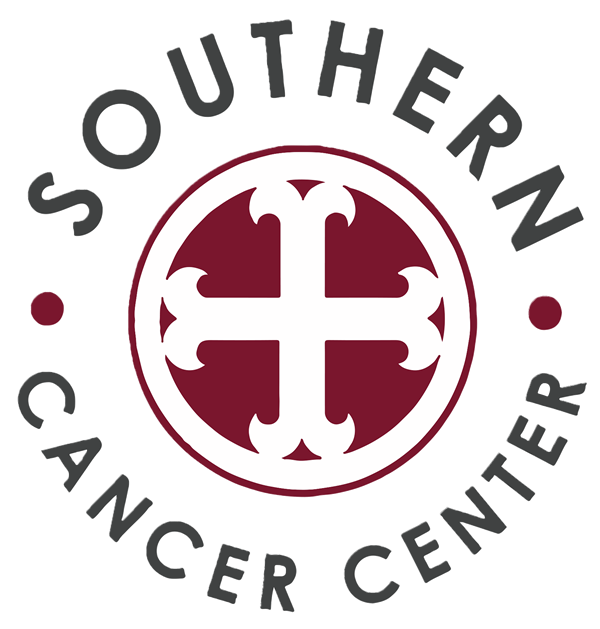What Is an Optimal Diet During Radiation Treatment?

Eating a balanced diet is essential for maintaining health and energy each day. Careful consideration and planning are even more critical when the body is in a state of healing.
Before and during radiation therapy, thoughtful food preparation and nutritious eating can be a help to patients. The benefits of healthful eating include feeling better, having more energy, and recovering faster. Not being able to consume enough nutrients and calories can lead to malnutrition and muscle loss which may amplify side effects, disrupt treatment, delay healing, and impact outcomes.
Patients should try to incorporate a mix of fats, proteins, carbohydrates, and ample hydration each day.
Why Is Protein Essential for Healing?
Proteins help repair body tissues; assist with blood clotting; maintain muscle mass and strength; keep the immune system strong; and act as an energy source. They play a vital role in a patient’s recovery and overall health, so ensuring each meal includes a protein source is important.
Protein-rich foods include eggs, nuts or nut butter, lean meats such as fish or poultry, dairy products, and soy.
What Are the Benefits of Dietary Fats?
Healthy fats, also known as unsaturated fats, can create an optimal healing environment. Fats are another energy source and can help the body fight inflammation and repair and replace injured tissue. Olive oil, nuts, seeds, flax, and avocados are great options for healthy fats.
What Do Carbohydrates Contribute?
Carbohydrates are a fast-acting and easily accessible energy source. The best sources are unprocessed and can be found in whole grains, fruits, beans, and vegetables. Carbohydrates also provide the body with fiber and additional vitamins and minerals that are necessary for mental and physical health.
Your immune system may become compromised with treatment. If this occurs, it is important to avoid foods that carry the risk of foodborne illnesses such as raw eggs, fish, or meats; unpasteurized dairy products; and unwashed fruits and vegetables.
Strategies for a Balanced Diet During Radiation Treatment
Eating during radiation treatment may not always be easy, but it is important to keep trying. Here are some helpful suggestions:
- Replace larger meals with smaller meals and snacks every few hours
- Choose protein-dense snacks, such as cheese sticks, yogurt cups, or hardboiled eggs throughout the day
- Incorporate a variety of fruits and vegetables as tolerated
- Keep travel snacks in your car or bag
- Boost your smoothies with protein powder
- Add healthy fats and proteins to dishes, for example, nut butter to hot cereal; avocado slices with soups or sandwiches; or adding olive oil to vegetables and salads
- Dine with family or friends to make mealtimes more enjoyable
- Avoid lying down immediately after eating
If you have difficulty consuming enough calories throughout the day, you may be referred to a clinical dietitian, who can help create a food plan based on your needs. If you’re unable to eat due to nausea, your doctor may prescribe antiemetics (anti-nausea medication).
Specific Tips for Head and Neck Radiation Therapy
Radiation therapy for head and neck cancers may cause side effects that impact eating. These may include dry mouth, sores, nausea, loss of taste or a metallic taste, or difficulty chewing and swallowing. To minimize uncomfortable side effects, consider the following:
- Eat soft, bland foods that won’t irritate the mouth
- Moisten foods with gravies or sauces
- Avoid spicy foods or acidic fruit, such as oranges or grapefruit, that may inflame sores
- Use plastic ware instead of metal knives, forks, or cans
- Suck on popsicles or lozenges to help increase saliva
- Rinse your mouth every four to six hours for comfort and palette cleansing between meals. (Use an alcohol-free mouthwash or a water and baking soda solution. Speak with your doctor or dentist about what might work best for you.)
If you experience excessive mucus in your throat, gargle with warm salt water and sip on liquids throughout the day. Warm tea with honey may help clear the throat. Warm ginger tea may additionally help if experiencing nausea. Add calories by opting for sports or therapeutic nutrition drinks.
Your provider may recommend a temporary feeding tube if choking or the inability to eat, drink, or swallow becomes a concern.
Specific Tips for Pelvic Region Radiation Therapy
Radiation therapy in the pelvic region may cause changes in bowel habits or cause bladder inflammation. Possible side effects may include bloating; difficulty urinating; diarrhea or constipation; and rectal irritation or itchiness (proctitis). To minimize complications after colorectal, prostate, or gynecologic cancer treatment, get recommendations from your care team and rely on best practices.
Minimize bloating and gas:
- Eat slowly and chew food well
- Avoid chewing gum and carbonated drinks
- Limit gas-producing foods, such as Brussels sprouts, cabbage, beans, and some artificial sweeteners, like sorbitol, aspartame, and stevia
Manage bladder issues:
- Drink plenty of liquids
- Avoid caffeine, alcohol, and spicy foods
- Avoid tobacco products
If suffering from frequent, watery bowel movements:
- Replenish fluids throughout the day
- Avoid caffeine and alcohol
- Eat more soluble fiber, such as sweet potatoes, carrots, oats, apples without skins, and bananas
- Speak with your physician if diarrhea does not improve
If suffering from constipation:
- Drink eight to 10 cups of liquids a day
- Establish regularity by eating and trying to have a bowel movement on a schedule
- Select high-fiber foods, such as bran cereals, popcorn, and fruits and vegetables with skins on
- Light exercise can improve regularity
- Contact your doctor if you are unable to have a bowel movement for three or more days; use laxatives only as recommended by a doctor
Minimize proctitis:
- Avoid caffeine
- Avoid spicy, acidic, and fatty foods during bouts of diarrhea
- Try switching to alternative forms of milk if lactose intolerance may be a factor
“Though cancer treatment can lead to changes in appetite, the right dietary choices can help you manage side effects and keep your body nourished, which is especially important for recovery,” advises Dr. Rachael Harmon, radiation oncologist at Southern Cancer Center.
Southern Cancer Center
The doctors and staff at Southern Cancer Center are here to help. We have served the Mobile & Baldwin County area for over 16 years. Our team specializes in medical oncology, radiation oncology, surgical oncology, hematology, and genetics. For more information, please call 251-625-6896.
Find more information specific to our radiation services here: www.southerncancercenter.com/radiation-therapy & information about our radiation oncologist, Dr. Rachael Harmon, here: www.southerncancercenter.com/our-providers/dr-rachael-harmon.
Sources:
Benefits of Good Nutrition During Cancer Treatment
Protein: Sources, deficiency, and requirements (medicalnewstoday.com)
MedShadow Foundation | Health & Wellness | Medication Side Effects
Proctitis: Causes, Treatment, and Surgery (healthline.com)Constipation and Cancer Treatment – Side Effects – NCI
Constipation and Cancer Treatment – Side Effects – NCI
Urinary and Bladder Problems and Cancer Treatment – Side Effects – NCI
